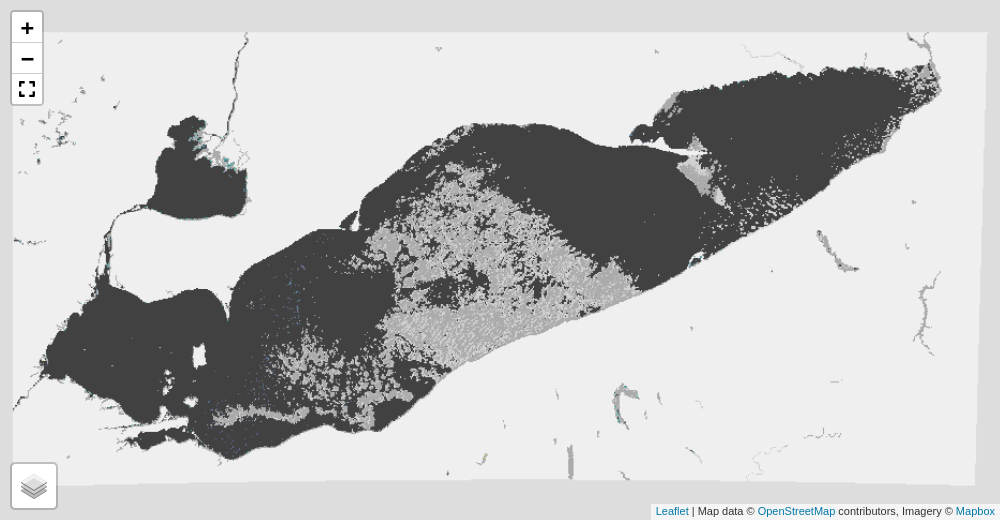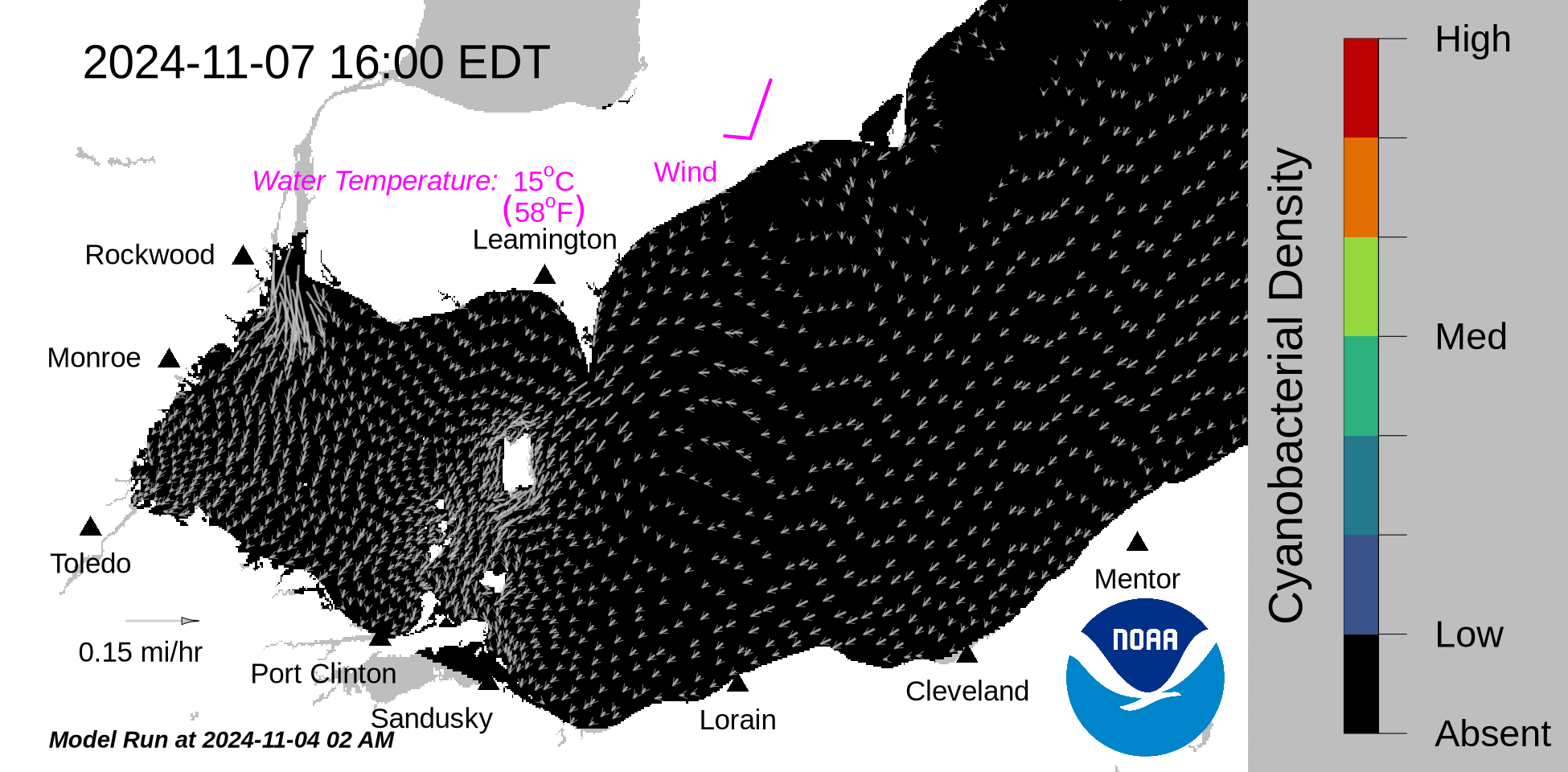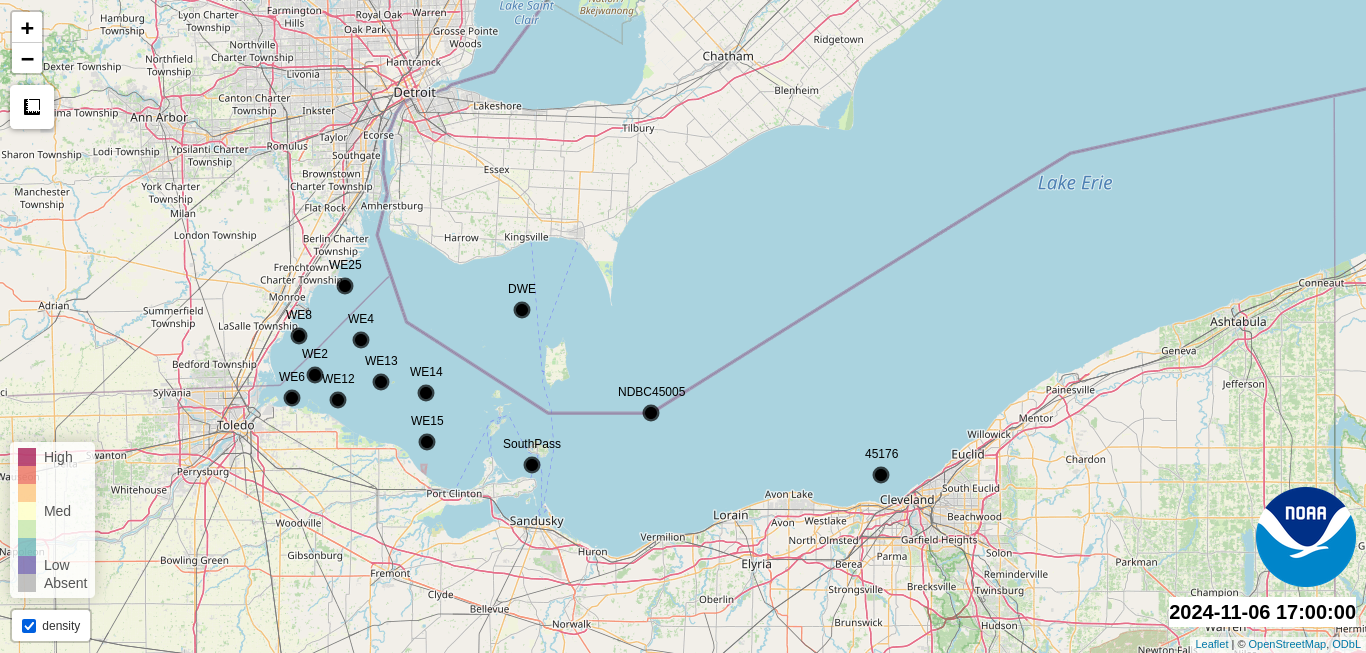Lake Erie Harmful Algal Bloom Forecast
NOAA provides forecasts for seasonal blooms of cyanobacteria (blue-green algae) in Lake Erie, typically from July to October when warmer water creates favorable bloom conditions. Western Lake Erie has been plagued by an increase of HABs intensity over the past decade. These blooms consist of cyanobacteria or blue-green algae, which are capable of producing toxins that pose a risk to human and animal health, foul coastlines, and impact communities and businesses that depend on the lake. A combination of satellite image (for bloom location and extent), a forecasting and mixing model provide information on the current status of the bloom, forecasted position both at the surface and at depth, and toxicity from field samples. See individual products and our FAQs for more information. For our Lake Erie Hypoxia forecast click here.
Forecast Products
The cyanobacteria bloom in western Lake Erie has an approximate area of 10 square miles, which is an increase in area since Jun 26. We will update the Observed and Forecasted Bloom Position when cyanobacteria is detectable. Sandusky Bay has a local bloom of mixed cyanobacteria. The seasonal forecast for the Lake Erie cyanobacteria bloom was issued June 26, and can be found by clicking here. No toxins have been detected. --Hounshell, Yu 07/02/2025
The past few days of imagery can be seen at the HAB monitoring site. The Lake Erie Forecast is operated by the National Centers for Coastal Ocean Science. Contact hab@noaa.gov for technical Questions. Last Updated: 2025-07-03 01 AM EST

Observed Bloom Position
(from most recent satellite image)
Current satellite imagery from the Ocean Land Color Imager (OLCI) and true color imagery showing bloom location and extent.
Please note, 11/04/2024 is the last model run for the 2024 bloom season.

Forecasted Bloom Position
(from modelling)
Forecasted extent and position of the bloom for a minimum of 96 hours, based on a combination of a hydrodynamic modeled currents and satellite imagery for initial bloom location.
Please note, 11/04/2024 is the last model run for the 2024 bloom season.

Vertical Mixing Forecast
Forecast of the potential for mixing over the next at least 96 hours, to determine the likelihood that the bloom is at the surface or subsurface.
Please note, 11/04/2024 is the last model run for the 2024 bloom season.
HAB Alerts
HABs in Lake Erie pose a risk to human and animal health, foul coastlines, and negatively impact communities and businesses. Sign up to receive Lake Erie HAB updates via email.
2024 Western Lake Erie Projections
The early season projection estimates bloom severity based on Maumee River discharge and modeled phosphorus loads. It is issued weekly from May until the seasonal forecast is announced.
- 2024 Western Lake Erie Seasonal Projections
- View Early Season Projection and Seasonal Assessment Archives
2024 Lake Erie Seasonal Forecast Event
The official seasonal forecast for Lake Erie was announced on June 27, 2024 during a live webinar hosted in collaboration with Ohio Sea Grant. View the press release or watch the recorded event.
Additional Resources
- Archived Lake Erie Forecasts
- More information about our bloom monitoring imagery
- FAQs – Frequently Asked Questions about cyanobacteria and the forecasts NOAA issues
- Contributors and Data Providers
- Lake Erie HAB Forecast Guide – User guide to help navigate the forecast products
For other data on Lake Erie HABs, visit one of these websites:
- NOAA GLERL – HAB Program
- NOAA GLERL – Great Lakes Coastal Forecasting System
- NOAA National Weather Service, Cleveland
- Ohio EPA
- Ohio State University
- Heidelberg University, National Center for Water Quality Research
For safety information on these blooms, visit the Ohio EPA website.
